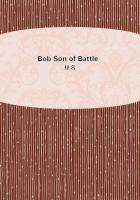XIII. Now that we may know what the scope and end of worshipping others is, we must consider the cause why men delight in worship: And we must grant what we have shewed elsewhere, that Joy consists in this, that a man contemplate vertue, strength, science, beauty, friends, or any Power whatsoever, as being, or as though it were his own; and it is nothing else but a Glory, or Triumph of the mind conceiving it selfe honoured, that is to say, lov'd and fear'd, that is to say, having the services and assistances of men in readinesse. Now because men beleeve him to be powerfull whom they see honoured (that is to say) esteemed powerfull by others, it falls out that honour is increased by worship; and by the opinion of power, true power is acquired. His end therefore who either commands, or suffers himself to be worshipt, is, that by this means he may acquire as many as he can, either through love, or fear, to be obedient unto him.
XIV. But that we may understand what manner of Worship of God naturall reason doth assigne us, let us begin from his Attributes: where, first it is manifest, that existence is to be allowed him; for there can be no will to honour him, who, we think, hath no being. Next, those Philosophers who said, that God was the World, or the worlds Soul, (that is to say, a part of it) spake unworthily of God, for they attribute nothing to him, but wholly deny his being. For by the word God we understand the Worlds cause; but in saying that the World is God, they say, that it hath no cause, that is as much, as there is no God. In like manner, they who maintain the world not to be created, but eternall; because there can be no cause of an eternall thing, In denying the world to have a Cause, they deny also that there is a God. They also have a wretched apprehension of God, who imputing idlenesse to him, doe take from him the Government of the world, and of mankind. For say they should acknowledge him omnipotent, yet if he minde not these inferiour things, that same thred-bare Sentence will take place with them, Quod supra nos, nihil ad nos;
What is above us, doth not concern us. And seeing there is nothing for which they should either love, or fear him, truly he will be to them as though he were not at all. Moreover in Attributes which signifie Greatnesse, or Power, those which signifie some finite, or limited thing, are not signes at all of an honouring mind. For we honour not God worthily if we ascribe lesse Power, or greatnesse to him then possibly we can; but every finite thing is lesse then we can, for most easily we may alwayes assigne and attribute more to a finite thing; No shape therefore must be assigned to God, for all shape is finite; nor must he be said to be conceived, or comprehended by imagination, or any other faculty of our soul; for whatsoever we conceive is finite:
And although this word Infinite signifie a conception of the mind, yet it followes not, that we have any conception of an infinite thing: For when we say that a thing is infinite, we signifie nothing really, but the impotency in our owne mind, as if we should say we know not whether, or where it is limited:
Neither speak they honourably enough of God, who say we have an Idea of him in our mind; for an Idea is our conception, but conception we have none, except of a finite thing: Nor they, who say that he hath Parts, or that he is some certaine intire thing; which are also attributes of finite things: Nor that he is in any place; for nothing can be said to be in a place, but what hath bounds and limits of its greatnesse on all sides: Nor that he is moved, or is at rest; for either of them suppose a being in some place: Nor that there are more Gods; because not more infinites.
Farthermore concerning attributes of happinesse, those are unworthy of God which signify sorrow (unlesse they be taken not for any Passion, but by a Metonomy for the effect) such as Repentance, anger, Pity: Or Want, as Appetite, Hope, Concupiscence, and that love which is also called lust, for they are signes of Poverty, since it cannot be understood, that a man should desire, hope, and wish for ought, but what he wants and stands in need. of. Or any Passive faculty; for suffering belongs to a limited power, and which depends upon another. When we therefore attribute a will to God, it is not to be conceived like unto ours, which is called a rationall desire; for if God desires, he wants, which for any man to say, is a contumelie; but we must suppose some resemblance which we cannot conceive. In like manner when wee attribute sight and other acts of the senses to him, or knowledge, or understanding, which in us are nothing else but a tumult of the minde raised from outward objects pressing the Organes, wee must not think that any such thing befalls the Deity; for it is a signe of power depending upon some other, which is not the most blessed thing. He therefore who would not ascribe any other titles to God, then what reason commands, must use such as are either Negative, as infinite, eternall, incomprehensible, &c. or superlative, as most good, most great, most powerfull, &c. or Indefinite, as good, just, strong, Creatour, King, and the like; in such sense, as not desiring to declare what he is (which were to circumscribe him within the narrow limits of our phantasie), but to confesse our own admiration, and obedience, which is the property of humility, and of a minde yeelding all the honour it possibly can doe. For Reason dictates one name alone, which doth signify the nature of God (i.e.) Existent, or simply, that he is; and one in order to, and in relation to us, namely God, under which is contained both King, and Lord, and Father.
XV. Concerning the Outward actions wherewith God is to be worshipped (as also concerning his Titles) its a most generall command of Reason, that they be signes of a mind yeelding honour; under which are contained in the first place, Prayers;
Qui fingit sacros auro, vel marmore vultus, Non facit ille Deos, qui rogat, ille facit.














